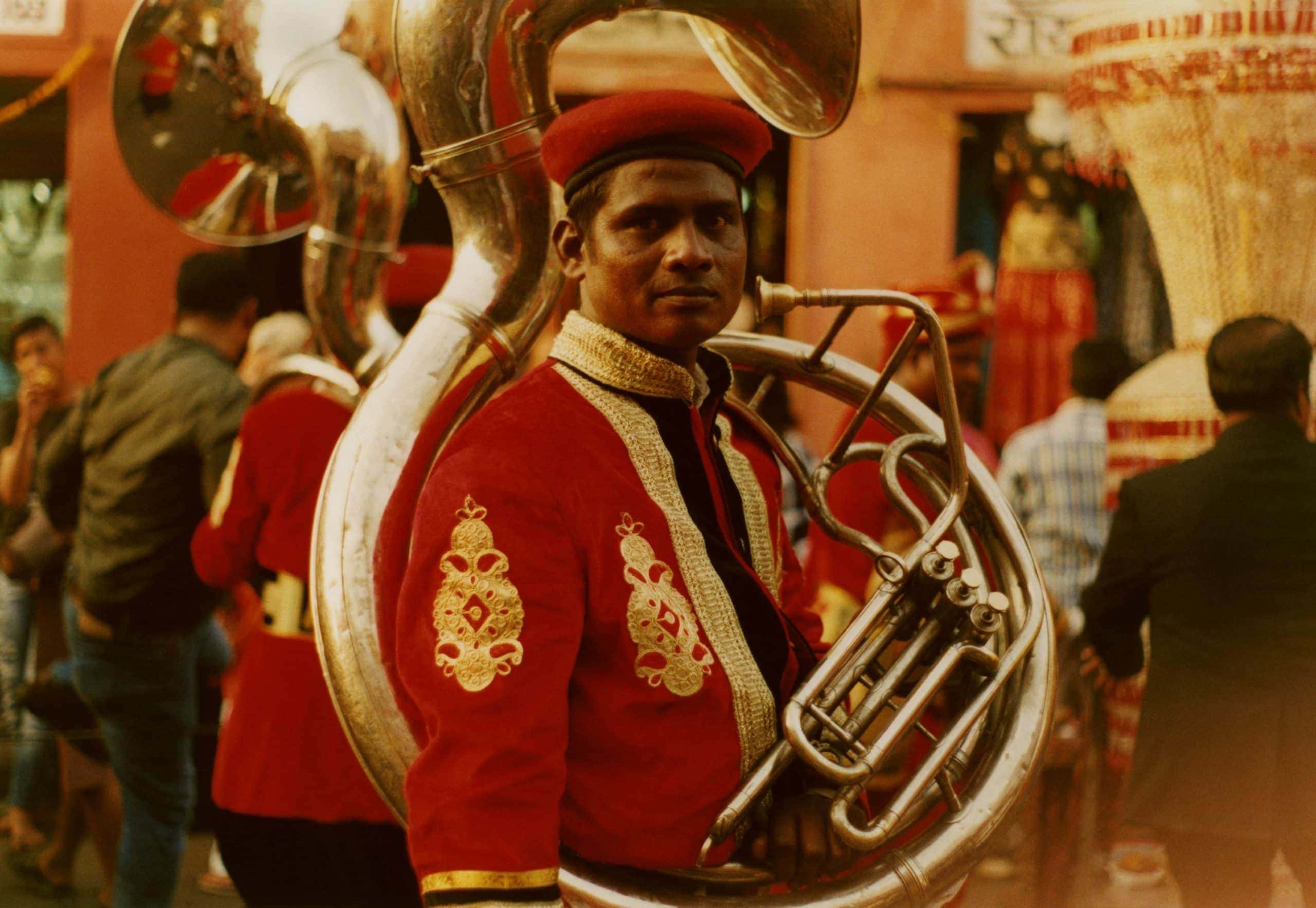
Born to a Sufi Muslim family, London-based photographer Suleika Mueller grew up between two disparate cultures. From a young age, she also accompanied her family on travels through the Middle East and North Africa, awarding her a glimpse into other cultures and places.
It was partly owing to these influences that Suleika went to India in 2017. Taking part in a range of Hindu festivals, she remembers how they recalled the Sufi practices she grew up with and knew she wanted to explore further.
Returning again in 2017, Suleika spent five weeks travelling around the country with her camera, meeting people and documenting her impressions and experiences along the way.
While still an outsider, Suleika attempts to show the commonalities that unite us, those which transcend age, gender, religion, ethnicity, social class and culture. Here she talks us through her journey.
Suleika, tell us how this project came about.
When I travelled to India for the first time a couple of years prior to this trip, my camera broke pretty much on day one and as much as I tried having it repaired locally, it just wouldn’t work anymore. At some point, I started to really enjoy the fact that I couldn’t take any pictures, but after that trip I started thinking about returning so I could take photos and discover other regions of the country.
About three years ago, I became a Buddhist so a lot of my practice and research was informed by that, as I started to dig deeper into the origins of Buddhism and as a result also Hinduism, Jainism and Sikhism, or what you would otherwise call the Dharmic religions. My theoretical research and knowledge really informed and fueled this project and finally led to the realisation of it.
What’s the meaning behind the title Moksha?
Moksha is the concept of ultimate freedom and liberation in Dharmic religions. Derived from the Sanskrit word, mukt, which means “liberation,” “release” and “emancipation”, it is the release from the life-death cycle and from the limitations of a worldly existence. To reach the state of moksha is to attain absolute freedom, peace and oneness with the divine.
Did you set out with a clear idea of how you wanted the project to look, or did you let your journey guide you and the final outcome?
I never really set out with a clear, strict idea in my head when I approach projects like these. There’s only so much you can plan when you’re travelling around and documenting. I definitely let my journey guide me and all the people that I’ve met on my travels really shaped the project into what it became in the end. I mostly worked with whatever and whoever I came across, rather than trying to look for specific subjects that I’d planned in advance.
What was the most challenging part about travelling around India and working on this project? If you were to go back, is there anything you’d do differently?
I guess the most challenging part was being a solo female traveller, also because I’d never really tried it prior to this trip. There were times when I felt a bit unsafe and scared and towards the end, I started to feel slightly lonely. However, most of my experience was absolutely incredible and I wouldn’t do anything differently!
Can you tell us about a memorable experience or encounter you had?
One of my most memorable encounters was when I met Geeta in Mumbai, as we ended up spending a lot of time together. She was from a remote village and couldn’t speak a word of Hindi, which made it impossible for us to talk. However, we spent days and nights telling each other stories through hand gestures and showing each other things and photos of our families, which was a beautiful experience. I love the portrait of her because her strength and beauty really come through.
Looking at these photos now, and seeing how important these daily rituals and gatherings are in India, how do you see the social distancing measures affecting people in the country?
I think social distancing in India is a privilege and in many places perhaps really hard to apply, seeing that an average Indian family has five members and 40% of all homes (100 million nationwide) only have one room. It’s also a country with more than 1.3 billion people that has a population density of 464 per square kilometre. As a comparison, in China it’s 153 per square kilometre and in the US it’s only 36.
Lastly, what are you working on at the moment?
I’m currently working on a number of different projects, a combination of fashion editorials, commissions and personal projects. I was about to travel abroad for my next project in the end of March this year, but sadly wasn’t able to catch my flights due to the pandemic. I do hope that I’ll be able to go there next year to shoot my project, but of course it’s really hard to tell what the future holds right now.




